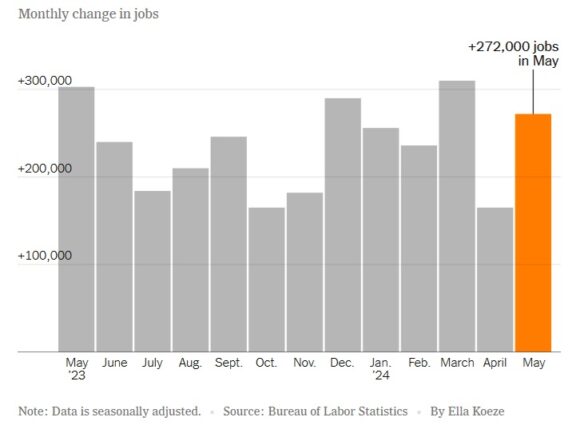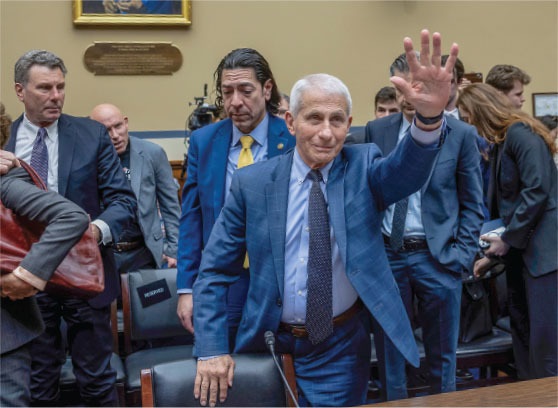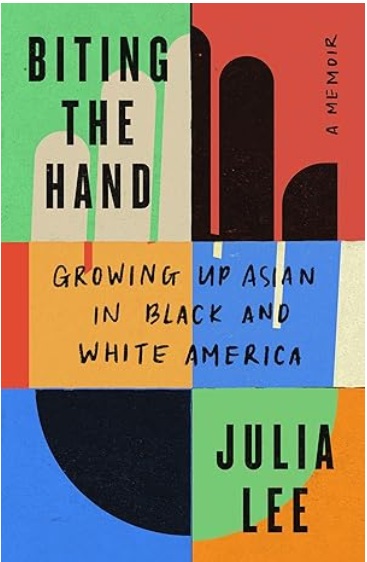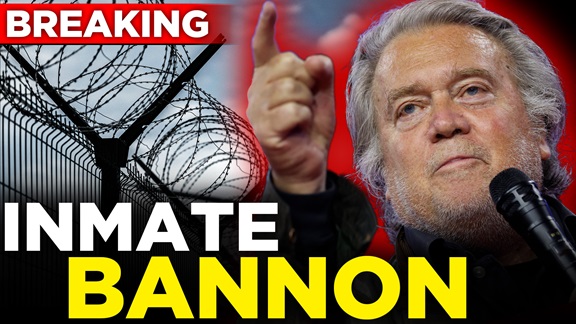 Molly Butler/Media Matters.
Molly Butler/Media Matters.
Dear Commons Community,
Depending on your perspective, the conviction of Donald Trump on 34 counts in a Manhattan courtroom was either a refreshing affirmation of the rule of law or a miscarriage of justice in a politically motivated prosecution. A jury returned a verdict finding that Trump had caused the falsification of checks, invoices, and ledgers to conceal the payment of $130,000 to adult film actress Stormy Daniels shortly before the 2016 presidential election, with intent to conceal the violation of campaign finance and tax laws.
We are all entitled to our own views of the case, of course, but opinion should also be based on facts. Certain myths promulgated by the Far Right, Fox News and other media are creeping into the conversation and distorting the truth about Trump’s conviction. And it’s worth examining some of these myths in order to dispel them. This analysis is courtesy of Time.
Myth: No one knows what Trump was charged with.
Response: Trump was charged in a 15-page indictment, handed up by a grand jury, with 34 counts of violating New York Penal Law 175-10 in the first degree, which is a felony. A violation in the first degree occurs when a person falsifies business records with an intent to defraud that includes an intent to commit, aid, or conceal another crime. In addition to the indictment, the Manhattan District Attorney filed a 13-page statement of facts detailing the allegations.
Myth: Prosecutors stretched the law to convert a misdemeanor into a felony.
Response: Under New York law, a simple falsification of business records without any intent to commit or conceal another crime is a violation of the statute in the second degree, punishable as a misdemeanor.
An intent to conceal another crime is an aggravating factor that brings enhanced penalties, such as a felony. This law containing degrees of severity was enacted by the New York legislature, and it is a common way of structuring laws with escalating penalties for more egregious violations. (For example, penalties for federal drug offenses range from misdemeanors for simple possession to lengthy terms of imprisonment for aggravating factors based on quantity or intent to distribute.) The grand jury found probable cause of 34 violations in the first degree, and the trial jury found proof of these crimes beyond a reasonable doubt.
Myth: The prosecution didn’t tell Trump what he was charged with until closing argument, a violation of due process.
Response: While the indictment specified each of the checks, invoices, and ledger entries alleged to have been falsified, it did not specify which crime Trump allegedly concealed. A defendant is entitled to fair notice of the crime with which he is charged so that he can effectively defend himself at trial, but New York law does not require this level of specificity in the charging document. New York case law requires that the indictment allege only a general intent to conceal a crime, not an intent to conceal a specific crime.
Nonetheless, prosecutors provided this specificity in a prosecution filing in November 2023, five months before his trial began. In that filing, prosecutors disclosed that the crimes they alleged Trump intended to conceal were violating state and federal campaign finance laws and violating state tax laws. The court rejected an additional basis offered by the prosecution, falsifying business records outside the Trump organization.
Myth: It was improper for a state prosecutor to charge a federal offense.
Response: The parties litigated this issue months before the trial and the court found that statutes outside of the laws of New York were proper bases to be considered “other crimes.” For example, case law has held that an offense under the New York statute prohibiting possession of a concealed weapon by a person who has been “previously convicted of any crime” may be proved by showing that the person was convicted of a crime in another state.
New York courts have also upheld the use of federal offenses as the predicate crimes in other cases involving the falsification of business records in the first degree, the very crime charged in Trump’s case.
Myth: Trump would not have been charged for a mere bookkeeping error if his name were anything other than Donald J. Trump.
Response: The Manhattan DA’s office has filed charges for falsification of business records 9,794 times since 2015. When announcing the charges, Bragg emphasized the importance of the integrity of business records in Manhattan, the “home to the country’s most significant business market.” He explained: “We cannot allow New York businesses to manipulate their records to cover up criminal conduct.” At the time of Trump’ s indictment, Bragg, had already filed 120 cases alleging violations of 175-10, all of them in the first degree based on the concealment or commission of another crime.
Myth: There is nothing illegal about paying hush money, and famous people do it all the time.
Response: Paying hush money itself is not a crime, but it is a crime to falsify business records. And it is a more serious crime to falsify business records with, as in this case, intent to conceal other crimes. These include violations of campaign finance laws, by accepting donations over the legal limit, and violations of tax laws, by inaccurately characterizing the payments as income.
Myth: The charges were filed after lengthy delay to interfere with Trump’s campaign for president.
Response: While prosecutors have discretion as to whether and when charges should be filed, there is no evidence that this case was brought to interfere with an election. In fact, the trial court found that the reason for the delay in bringing charges was partly Trump’s own doing.
In 2018, the case was being investigated by the U.S. Attorney’s Office for the Southern District of New York, which convicted Trump’s lawyer, Michael Cohen, for the same conduct, and referred to Trump in the charging document as “Individual-1.” For reasons unknown, federal prosecutors during the Trump Administration did not bring charges against Trump. Once federal prosecutors closed their investigation, Bragg’s predecessor, Cyrus Vance, Jr., started this investigation, but was delayed by Trump’s prolonged challenges to grand jury subpoenas for his financial records, taking his objections all the way to the U.S. Supreme Court.
When Vance retired and Bragg was elected, Bragg insisted on reviewing the evidence before deciding whether to continue with the case. Ultimately, he decided to go forward. All of these factors contributed to the delay.
Myth: Justice Juan Merchan was biased because of his $35 financial contribution to Joe Biden and because of his daughter’s work as a democratic political consultant.
Response: Justice Merchan sought an opinion from the New York Advisory Committee on Judicial Ethics, regarding both of these issues, and received an opinion that he need not recuse himself from the case. The finding of Trump’s guilt was made by a jury that Trump’s lawyers helped select.
Myth: Juan Merchan is a judge on the New York County Supreme Court.
Response: Merchan’s correct title is “justice,” even though he presides in one of New York’s trial courts, which are called the Supreme Court of each county. The state’s highest court is called, oddly enough, the New York Court of Appeals.
Myth: Justice Juan Merchan violated Trump’s rights to defend himself by refusing to permit him to call an expert witness.
Response: In Trump’s defense, he wanted to call Brad Smith, a former member of the Federal Election Commission, as an expert witness on federal election law. Expert witnesses are permitted to testify in trials to assist the jury in understanding facts about matters beyond ordinary understanding. Matters of law, in contrast, are for the judge to provide.
Justice Merchan did not prohibit Smith from testifying, but when he ruled that he could testify only about facts, and not law, Trump’s team decided not to call him as a witness. Contrary to this myth, Justice Merchan would have erred if he had permitted Trump to call an expert witness to testify about the law.
Myth: Justice Merchan violated Trump’s First Amendment rights to free speech and to testify in his own defense by imposing a gag order in the case.
Response: The gag order entered by Justice Merchan and upheld by the five-judge appeals division did not prevent Trump from testifying in his own defense, a right Merchan expressly explained to Trump in open court during the trial. Trump had every right to do so, and chose to instead exercise his right to remain silent at trial.
The gag order restricted the defense from making statements outside of court that targeted witnesses, jurors, staff and family members of the court and prosecution team, though not Justice Merchan or Bragg himself. The court of appeals found that the order properly protected witnesses and the fair administration of justice.
Myth: The U.S. Supreme Court may intervene and overturn Trump’s conviction before the his sentencing on July 11, which is four days before the GOP convention.
Response: Trump may appeal his conviction after he is sentenced on July 11. The case could not go before the U.S. Supreme Court until he exhausts all of his appeals in the New York state court system, which likely will take more than a year. Then, Trump could ask the U.S. Supreme Court to review his case, but only for alleged errors applied to federal statutes or the U.S. Constitution, such as the due process clauses of the 5th and 14th Amendments.
Tony
 John Fetterman. credit. Steven M. Falk – The Philadelphia Inquirer
John Fetterman. credit. Steven M. Falk – The Philadelphia Inquirer










